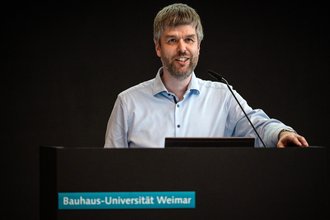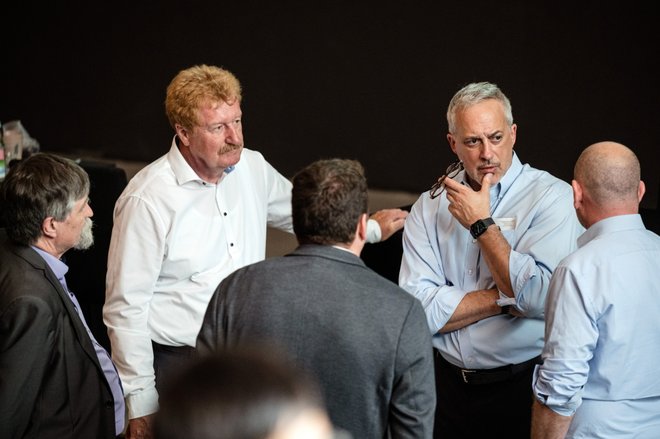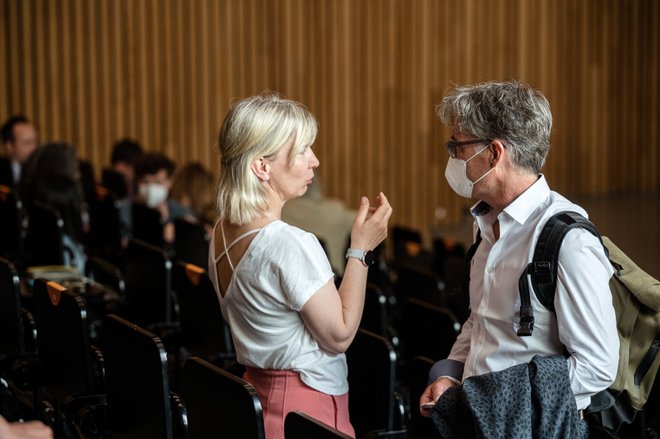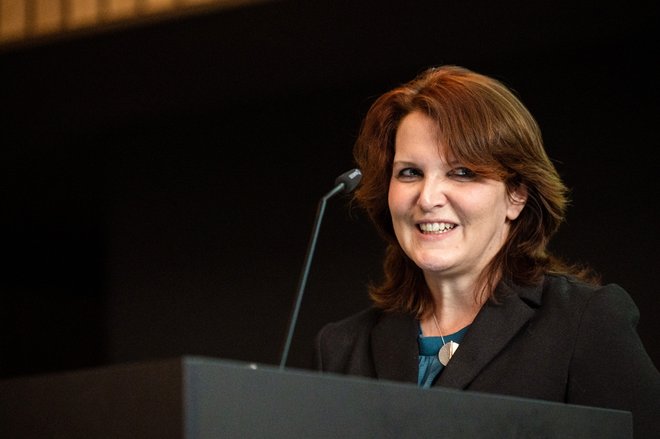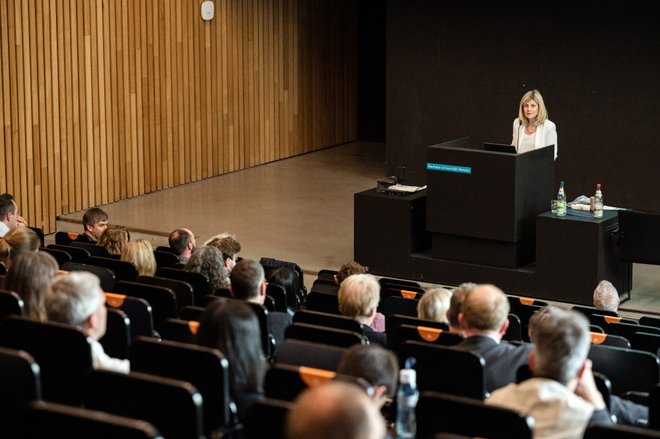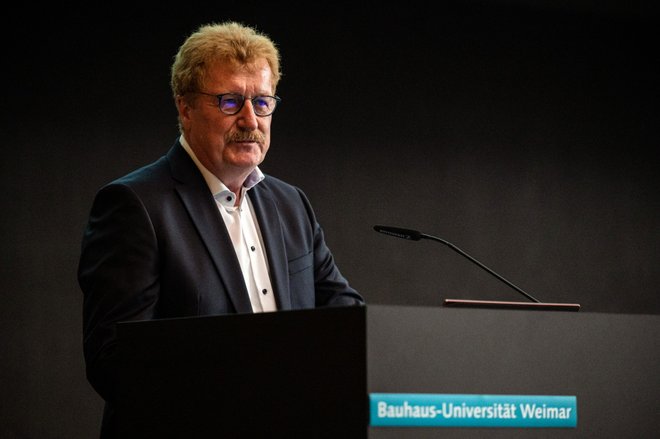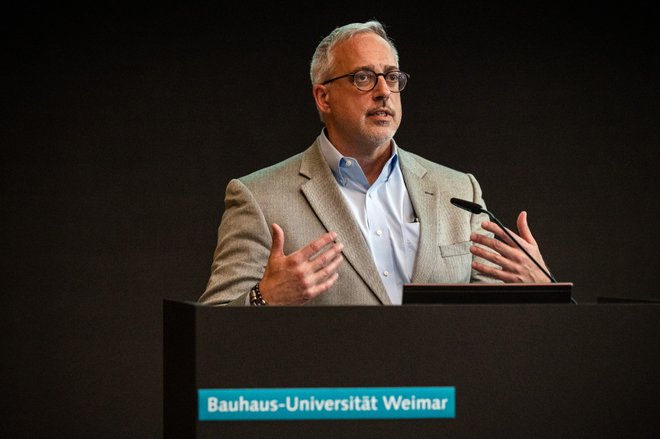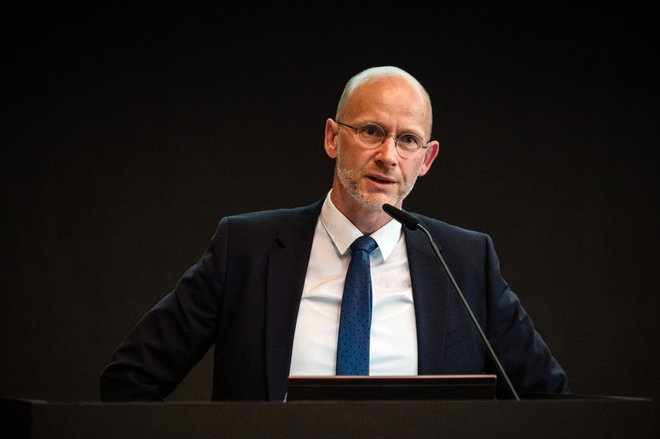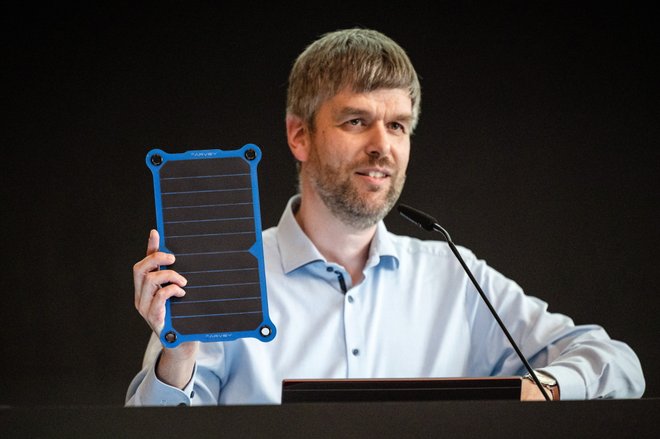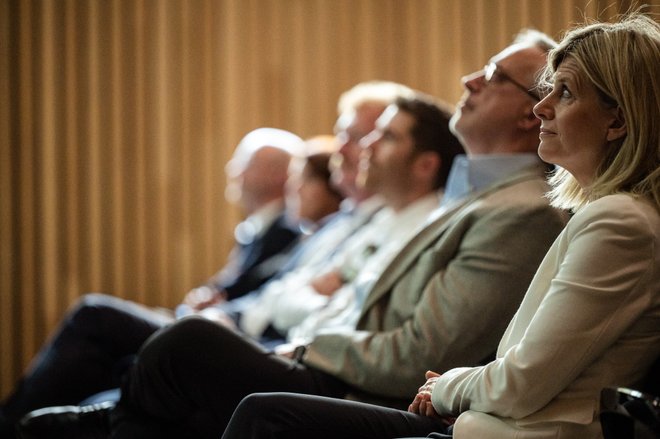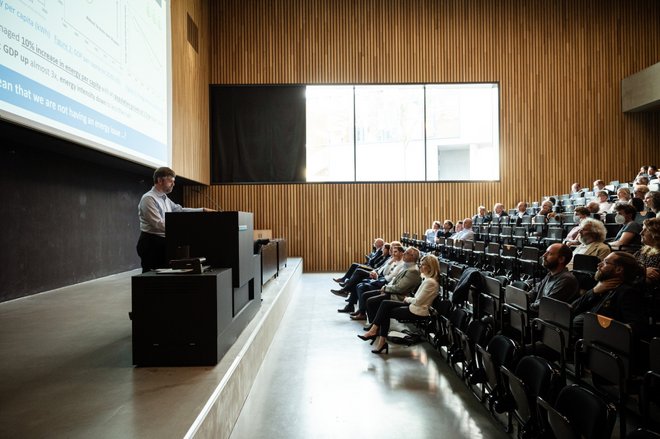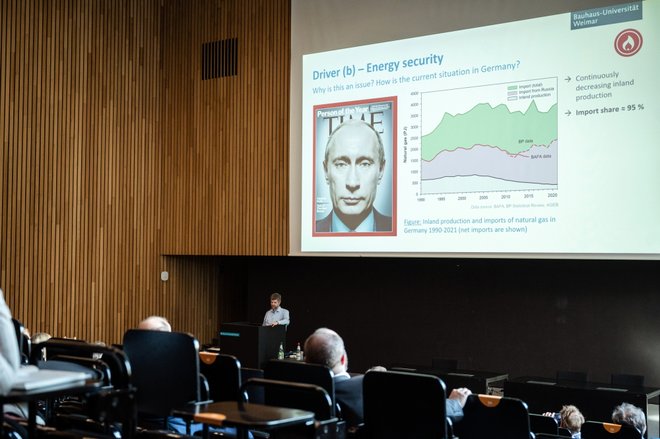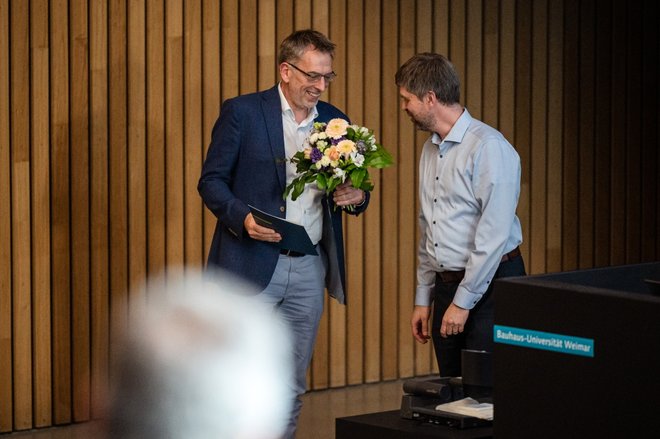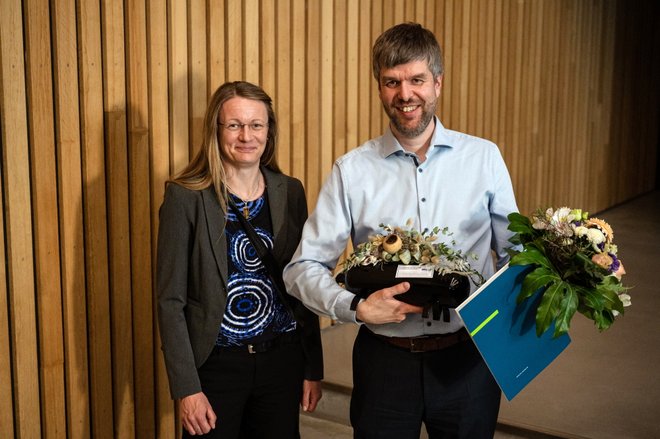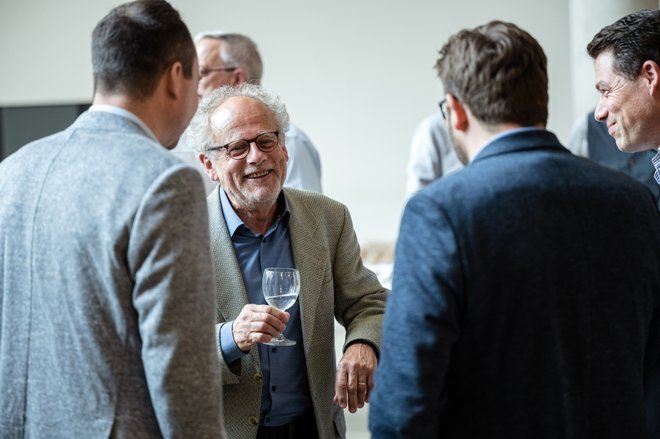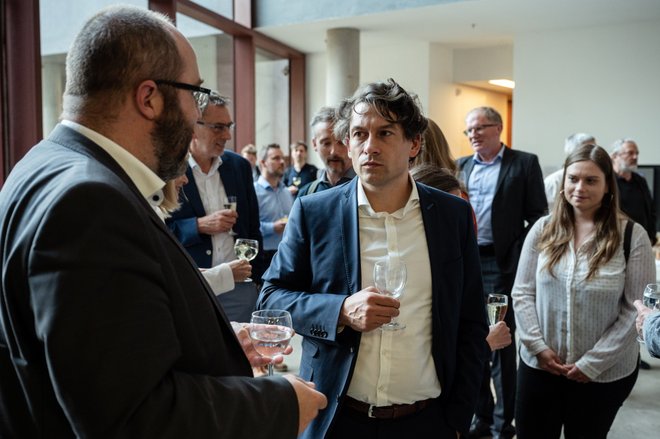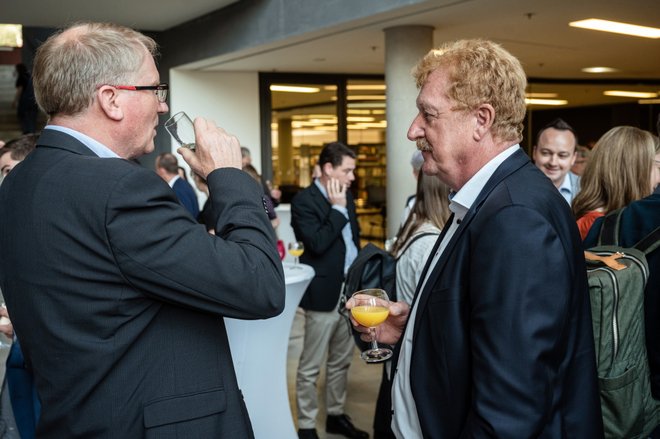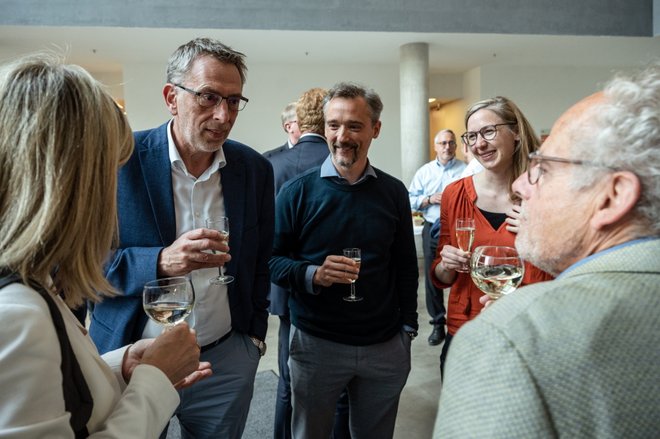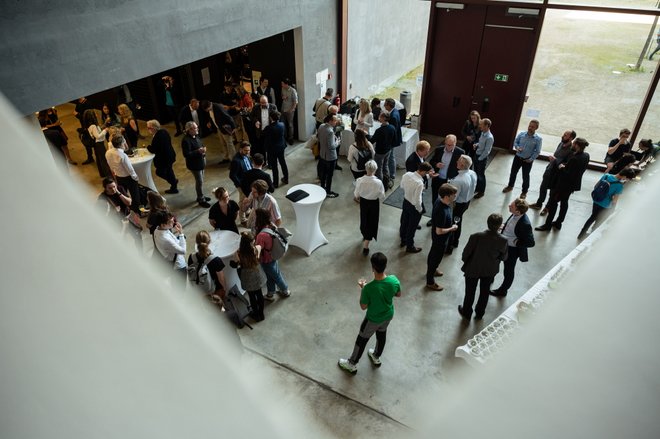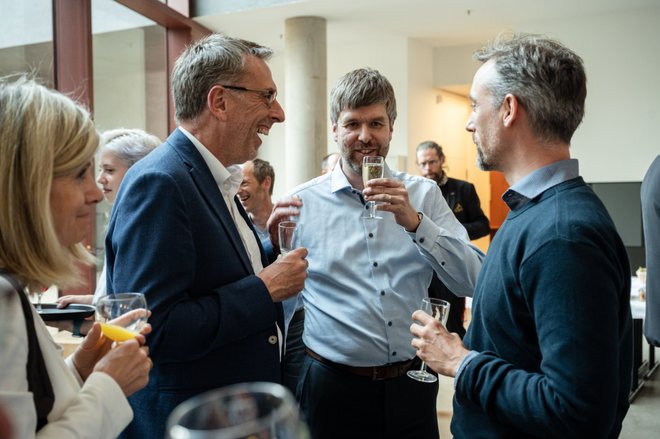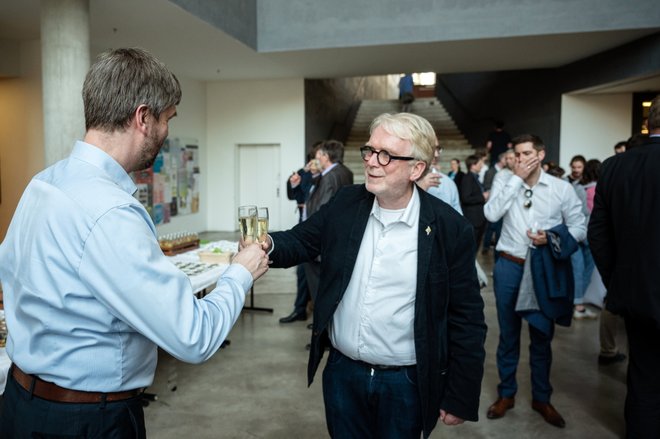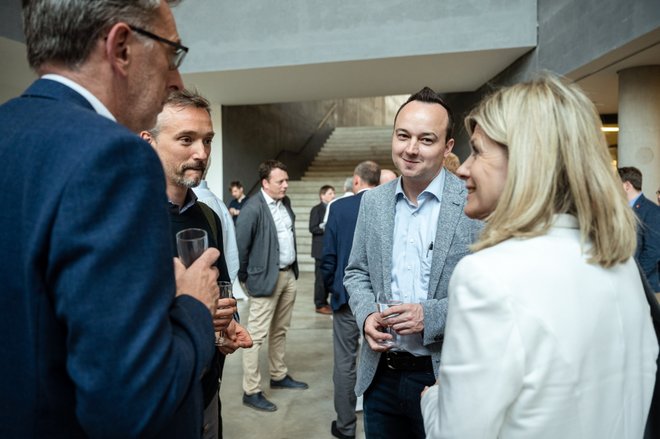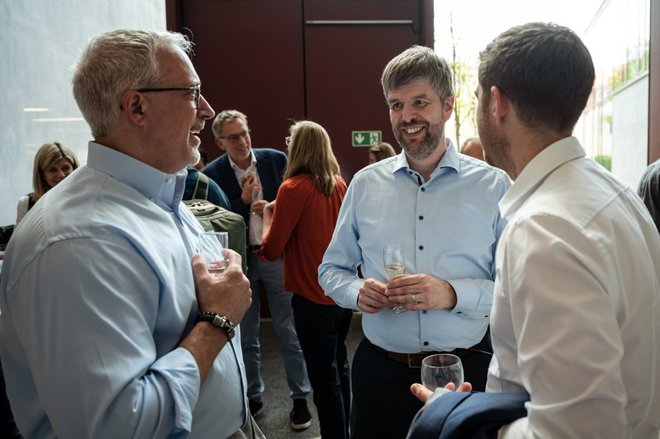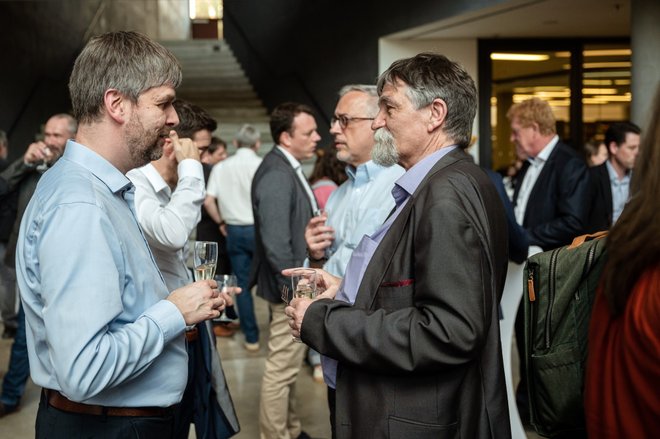»Devising our Energy Future« – Inaugural Lecture by Prof. Dr. Mark Jentsch
A good two and a half years after his appointment as endowed professor for »Energy Systems«, Professor Jentsch hosted an inaugural lecture in the Audimax at the Bauhaus-Universität Weimar on 11 May 2022. Due to the pandemic-related delay, the event also provided an opportunity to take stock. Around 100 guests from business, science and politics acknowledged Professor Jentsch’s future-oriented work in the field of hydrogen production and usage for a comprehensive energy and mobility transition.
The global population is growing and, with it, the energy requirements. Around 78% of this energy is currently obtained from fossil fuels such as coal, oil and gas. To avoid further fuelling the global climate crisis, a shift toward renewable energies is indispensable. However, »No problem = No solution« was the sobering conclusion drawn by Professor Jentsch regarding the measures implemented to date for a comprehensive energy and mobility transition. While the effects of global warming are already clearly discernible, the suffering does not yet appear to be sufficient to prompt radical change. Some progress has been made since the Ukraine war started and energy embargoes were imposed on Russia though, hence Jentsch identified maintaining »energy security« and the spiralling costs for business and politics as the biggest drivers of the energy and mobility transition.
But how can we make the energy supply of the future sustainable? If it were up to Professor Jentsch and the supporters of the endowed professorship in »Energy Systems«, the answer would be with green hydrogen! Green means using energy from renewable sources, ideally that has been produced locally. Supporters agree that this is a generational task that we can only accomplish together. »Professor Jentsch is performing outstanding pioneering work for the state of Thuringia,« says Dr Katja Böhler, State Secretary of the Thuringian Ministerium für Wirstschaft, Wissenschaft und Digitale Gesellschaft (TMWWDG), in her thank-you address. Not only is the »Thuringian Hydrogen Strategy« based on an expert report prepared by the professorship; the first model projects have already begun in Weimar, Apolda and Sonneberg. Strong partners from science, industry and politics support the professorship in the implementation. The aim is to advance the decentralised hydrogen economy of tomorrow and to pave the way for sustainable hydrogen production and usage in the electricity, transport and heat supply sectors.
Background
Professor Jentsch has been exploring the interactions between climate, energy, buildings and urban development for more than 20 years now. After completing his architecture studies in Wismar, Jentsch moved to the University of Southampton for his PhD that he completed within the Faculty of Civil & Environmental Engineering in 2010. In 2012, he was appointed Junior Professor for »Urban Energy Systems« at the Bauhaus-Universität Weimar. Seven years later, the professorship was reestablished as the endowed professorship in »Energy Systems«; it has been led by Professor Jentsch ever since. He works to highlight the potential of hydrogen applications and specifically promote further development of the energy industry in Thuringia in this function. The endowed professorship is being funded up until 2023 by the Thuringian Ministry of Education, Science and Culture, Kyros Hydrogen Solutions GmbH, the Bauhaus-Universität Weimar, and the Foundation for Technology, Innovation and Research Thuringia (STIFT).

